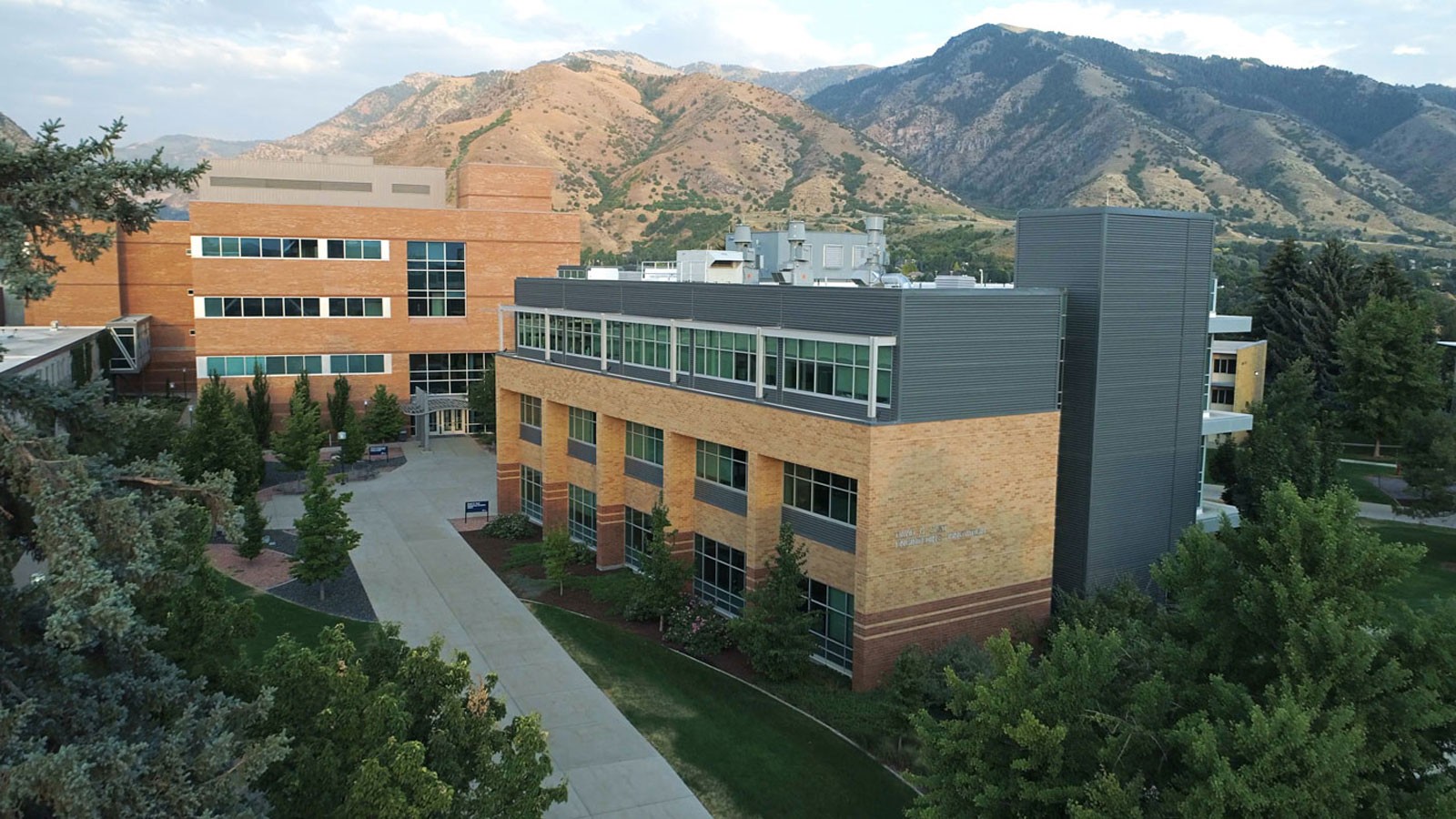USU Joins Utah Network for Integrated Computing, Semiconductor Research and Education
By Sydney Dahle |
The David G. Sant Engineering Innovation Building and the Richard Moonyeen Anderson Engineering Building on the USU Logan campus.
Capitalizing on a boom in the nation’s semiconductor industry following the passage of the 2022 CHIPS Act, Utah State University will join institutions across the state in research conducted by the Utah Network for Integrated Computing and Semiconductor Research and Education.
Launched by the University of Utah, the organization will consist of statewide partnerships between public research institutions, governmental bodies and members of private industry. The goal is to help develop Utah’s semiconductor workforce and increase its access to key technological infrastructure.
As an R1 university, USU will have a role in conducting research as well as developing curricula with content that spans from high school to Ph.D.-level classes that will help prepare the next generation of Utah’s semiconductor workforce.
University of Utah President Taylor Randall announced the launch of UNICOS on Thursday, Oct. 12, at an event for 47G, the new name of the Utah Defense and Aerospace Association. According to the U, harsh environments of aerospace applications require highly specialized computer chips and other electronics, and UNICOS promises to be a pathway toward shortening their supply chains.
“We are honored to be a part of such a big and important project,” said Rose Hu, associate dean for research at the USU College of Engineering. “Our talented faculty will work hard to increase the output of semiconductor research as well as help to prepare the next generation of the semiconductor workforce.”
UNICOS will be led by Director Hanseup Kim and Deputy Director Berardi Sensale-Rodriguez.Kim is also the director of the Utah Nanofab, the largest facility dedicated to semiconductor research and development in the Pacific Northwest.
Partnerships enabled through UNICOS will expand access to the tools at Nanofab and subsidize their operating costs, reducing the need for local academic institutions and industry members to independently purchase and maintain this expensive equipment.
“Ultimately, UNICOS will become a research platform that fosters collaboration between scientists and engineers across the state, whether they are in academia or industry,” Kim said. “We need to train those researchers first.”
The Utah Nanofab will also support UNICOS’ educational arm, the Utah Semiconductor Training Center. Students and employees across Utah will have new opportunities for hands-on learning with Nanofab faculty and technical staff, gaining necessary experience working in sterile cleanroom environments and with some of the most advanced technical equipment in the nation.
Before training onsite, UNICOS will offer a certificate program, with “stackable” classes aimed at providing a solid foundation for both young students interested in careers in this area, as well as for professionals without semiconductor backgrounds who are looking to transition into the industry.
Academic partners in addition to USU and the U include Utah Valley University, Southern Utah University, Utah Tech University, Brigham Young University, Salt Lake Community College, Snow College, Weber State University and Mountainland Technical College.
Several industry partners will also be part of the UNICOS network, including Micron, Lockheed Martin, L3Harris, Merit Sensor, Silicon Technologies, Inc., and Blackrock Neurotech.
WRITER
Sydney Dahle
Public Relations Specialist
College of Engineering
435-797-7512
sydney.dahle@usu.edu
CONTACT
Rose Hu
Associate Dean for Research
College of Engineering
435-797-7869
rose.hu@usu.edu
TOPICS
Engineering 337stories STEM 164stories Partnerships 58storiesComments and questions regarding this article may be directed to the contact person listed on this page.







